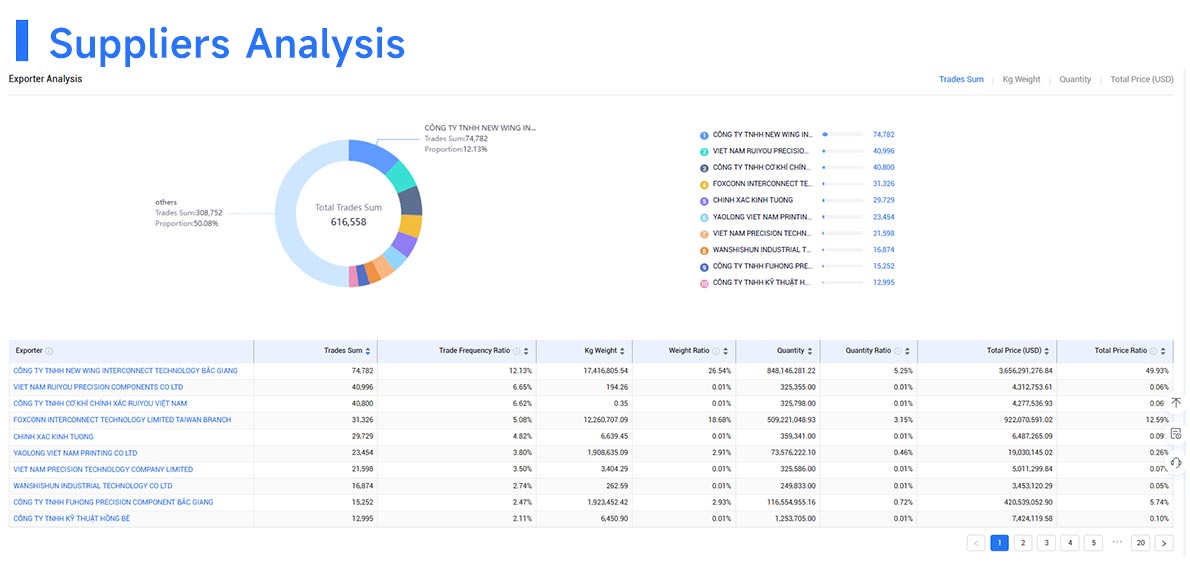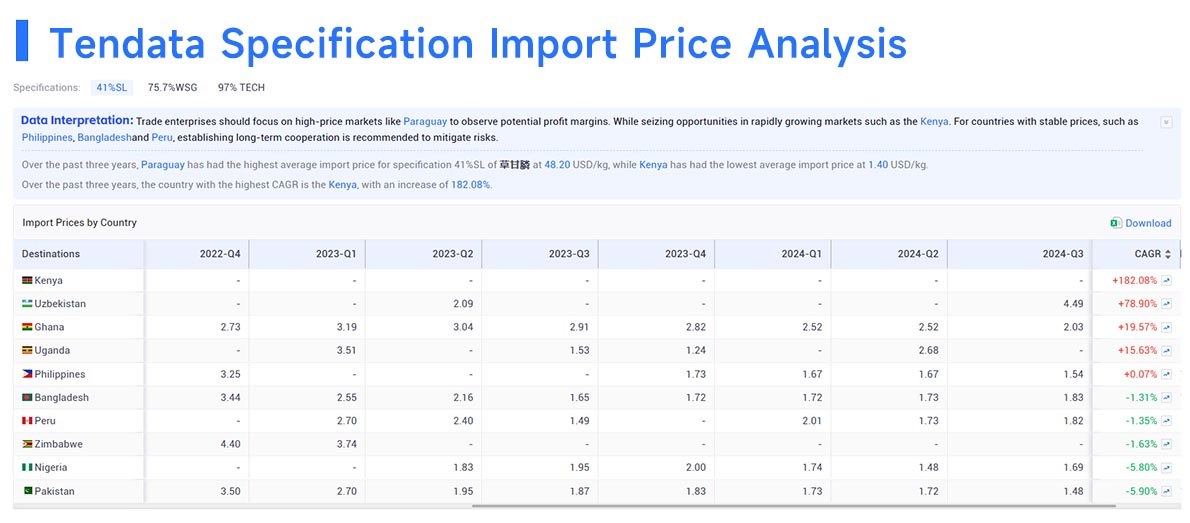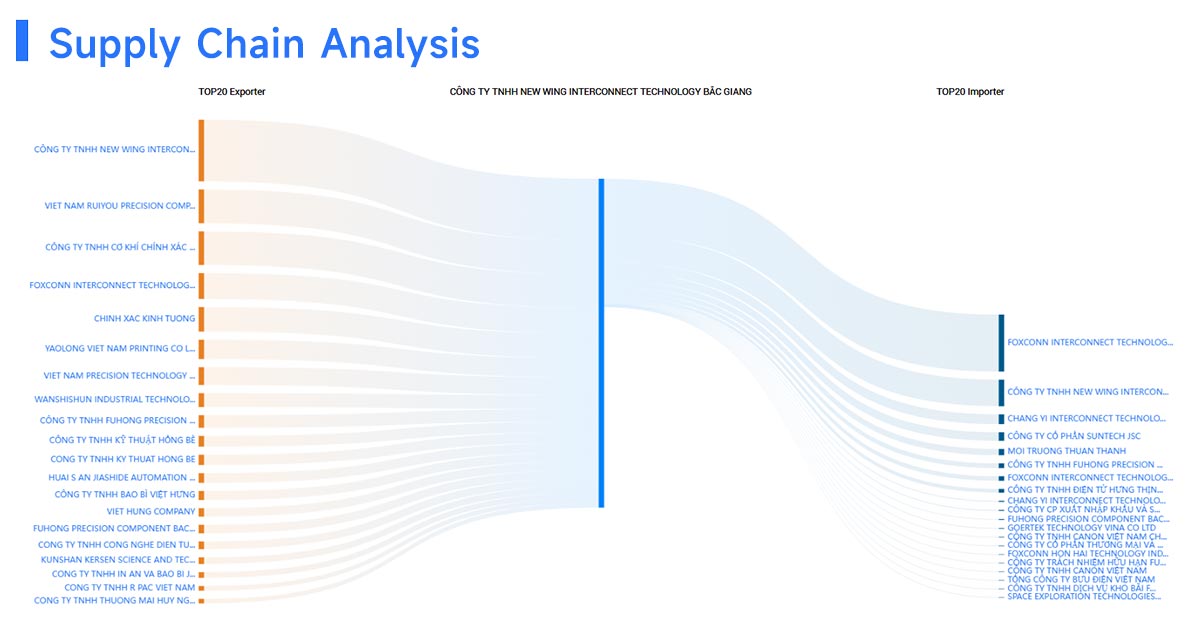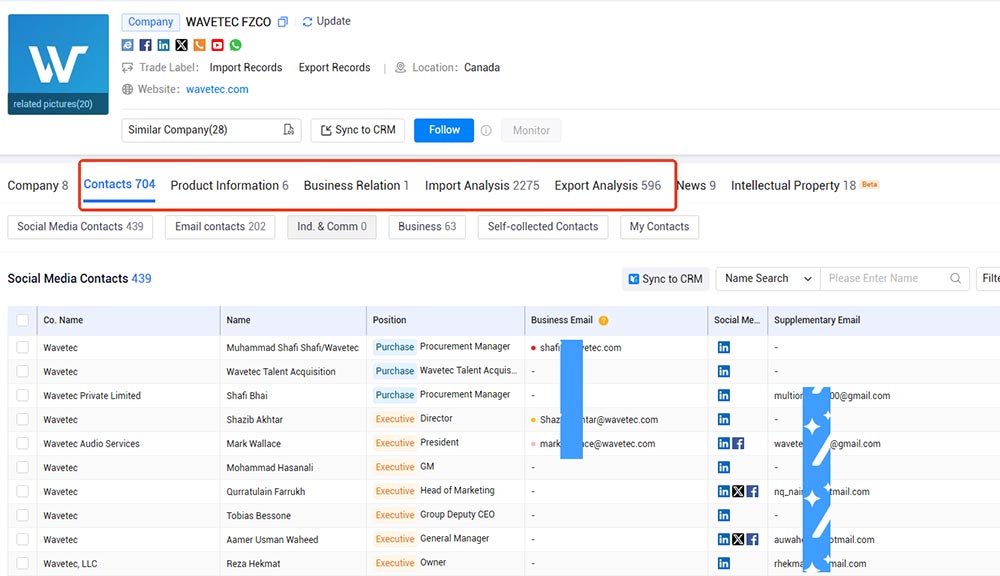 Trade Data
Trade Data
 2025-07-02
2025-07-02
Canada's trade data is managed and made publicly accessible through several platforms and resources, offering detailed information on imports, exports, and trade flows. These platforms can help businesses, policymakers, and researchers access real-time trade data for analysis and decision-making. Below are key platforms and resources related to Canadian trade data:

1. Canada's Trade Data Online (TDO)
Website: Trade Data Online
This is one of the most comprehensive platforms provided by Innovation, Science and Economic Development Canada (ISED). It offers access to detailed trade data on Canadian imports and exports, including:
Customs data on merchandise trade by commodity and country.
Historical trade statistics that allow users to explore trade trends over various time periods.
Export and Import by Product: Users can search by HS (Harmonized System) codes, tariff codes, or product categories.
Trade by Province: This allows analysis of trade flows from different provinces to specific countries.
Key Features:
Users can query data for specific products, regions, and time periods.
Can access data in multiple formats like Excel or CSV for further analysis.
Helps in analyzing trends, making market-entry decisions, or understanding the trade composition of Canada.
2. Statistics Canada
Website: Statistics Canada – Trade
Statistics Canada is the official national statistical office and offers access to a wealth of economic data, including comprehensive trade data. Some of the key tools include:
Trade data on goods and services imports/exports by commodity, region, and industry.
Detailed analysis reports on trade trends, including impact studies and year-on-year comparisons.
Monthly trade reports summarizing Canada's trade balance, export/import values, and trends.
Key Features:
Provides data for imports, exports, and trade balances at the commodity level.
Users can download datasets, reports, and charts for in-depth analysis.
Offers trade data for individual provinces, showing regional trade patterns.
>>>> Get Canada's trade data <<<<

3. Canada Border Services Agency (CBSA)
Website: CBSA - Trade Data
The Canada Border Services Agency (CBSA) is responsible for enforcing Canadian customs laws and regulations. Through the CBSA website, one can access trade-related data for:
Detailed import/export data specific to Canadian customs.
HS Code-related trade data: This allows businesses to analyze goods classified under the global Harmonized System.
Border enforcement statistics related to imports and exports.
Key Features:
Offers access to data related to customs compliance and duty rates.
Information on specific products being imported or exported across Canadian borders.
4. Global Affairs Canada
Website: Global Affairs Canada - Trade and Export Development
Global Affairs Canada is the department responsible for Canada's international trade and diplomatic relations. On its site, users can find:
Trade agreements and their associated data, such as benefits from trade deals like CUSMA (formerly NAFTA) and the Comprehensive Economic and Trade Agreement (CETA) with the EU.
Trade policy documents which can influence trade practices, regulations, and tariffs.
Key Features:
Provides data on international trade agreements and their impact on Canadian exports.
Analyzes the business climate in Canada and offers resources for Canadian exporters.
5. Trade Map by the International Trade Centre (ITC)
Website: Trade Map
While not a Canadian-specific platform, Trade Map by the International Trade Centre (ITC) provides access to global trade statistics including Canada. It offers:
Trade flow data for exports and imports at the product level.
Access to trade statistics for multiple countries, including Canada, to compare trade performance across borders.
Interactive charts and graphs for trend analysis and business forecasting.
Key Features:
Offers a more global view and allows comparison of Canada’s trade performance with other countries.
Customizable queries for trade by product, country, or region.
Historical and forecast trade data available.
>>>> Enter Canada's trade data platform<<<<

6. Export Development Canada (EDC)
Website: Export Development Canada
EDC is a Crown corporation that supports Canadian businesses in growing their international trade and investments. While its primary goal is not to provide raw trade data, it does offer:
Trade insights including sector-specific trends, market opportunities, and risk analysis.
Business tools like guides for entering international markets and leveraging trade agreements.
Key Features:
Reports on the global market trends that can help Canadian exporters.
Useful country risk assessments and market entry guides for Canadian businesses.
7. Canadian International Trade Tribunal (CITT)
Website: CITT
The CITT provides data and rulings related to trade disputes and trade remedy measures (like anti-dumping, countervailing duties). It also offers:
Tariff data and rulings on trade disputes.
Information on Canadian anti-dumping and countervailing measures.
Key Features:
Helps businesses understand the legal context of Canadian trade regulations.
Provides information on rulings that might affect imports and exports.
>>>> Get Canada's trade data <<<<
10. Tendata
Website: www.tendata.com
Tendata is a global trade data provider that includes Canada in its extensive trade database. Tendata is particularly useful for identifying global trading opportunities for businesses exporting from Canada, especially in markets like Asia, Europe, and the Americas.
Key features include:
Detailed import/export data for Canada with a focus on product-specific insights.
Market intelligence and trade partner analysis for businesses looking to expand into Canada or export Canada products.

How to Use These Platforms Effectively
For businesses: If you're involved in importing or exporting goods in Canada, platforms like Trade Data Online and Statistics Canada provide detailed data that can inform business strategy, help identify new markets, or evaluate trade policy impacts.
For policy analysis: Use these platforms to track trade policy impacts, understand trends in trade balances, and get insights into trade negotiations and agreements.
For research: If you're an academic or analyst, these sources provide comprehensive and historical data for research on trade patterns, regional analysis, and economic trends.

Conclusion
Canada offers several authoritative and user-friendly platforms to access trade data, each serving different needs and interests. Depending on your focus—whether it's economic analysis, trade compliance, or market research—these platforms will provide the insights needed to navigate Canada's trade landscape effectively.
Category
Leave Message for Demo Request or Questions


 T-info
T-info T-discovery
T-discovery

 My
Tendata
My
Tendata Market Analysis
Market Analysis Customer
Development
Customer
Development Competitor
Monitoring
Competitor
Monitoring Customer Relationship
Customer Relationship





































































































































